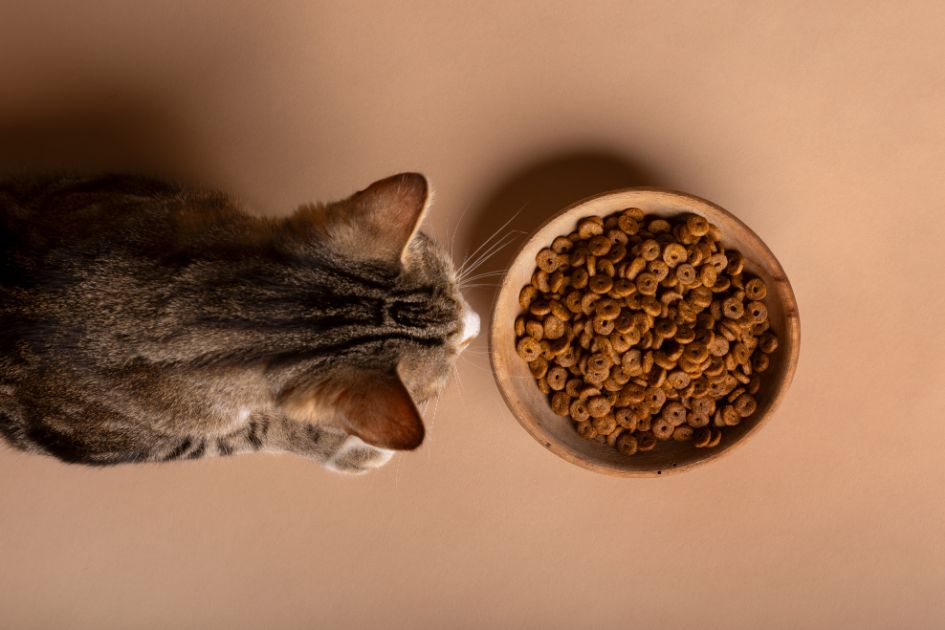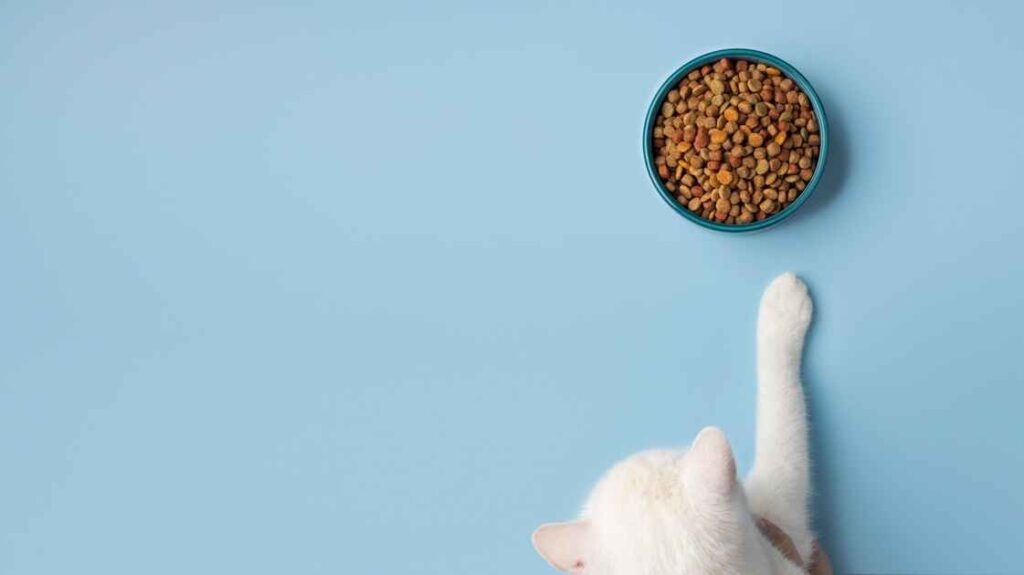
If you are looking for the best kitten food then you must read the whole article. For the good health of your kitten, you must choose the food carefully. Multiple companies are making food for dogs and cats but the kitten are eating different food. A healthy diet is the foundation of excellent health. Keeping your cat’s food nutrient-rich requires paying attention to the right food storage recommendations. There are slightly different techniques for keeping commercial fresh food, homemade kitten food, dry kibble, and wet cat food fresh for your cat. Continue reading to get all the information you require on maintaining fresh cat food.
Why Does Fresh Kitten Food Matter?
The moment cat food leaves the manufacturer, it is at its freshest. It travels, is kept in storage facilities, and is placed on store shelves. Freshness quickly diminishes as soon as you open the bag, can, or package once you arrive home. If stored correctly, cat food can last longer and stay fresh. If stored improperly, kitten food can get rancid, stale, rot, attract rats, and attract insects.
You should never give your cat spoilt, rotten, or outdated cat food because it can make them sick from eating it. (Donating it to other cats in need is risky for the same reasons.) Your cat will turn up their nose at food that has even slightly gone bad. Make sure you check the package for the expiration date before buying or opening cat food. Ensure that this date is far enough in the future for your cat to consume the food before you do. If the food is dry, make sure the packaging is free of rips or tears that could allow air to get inside and affect the food’s quality.
Cans that bulge or swell should be thrown away for wet food. Make contact with the food producer to enquire about a refund if the food hasn’t expired. Food spoiling is indicated by swelling and bulging, which are caused by gas produced and released by bacteria.
The Advantages of Fresh Kitten Food
Your cat can more effectively absorb nutrients from fresh food. Over time, nutrients deteriorate, particularly if food is not stored correctly. Additionally, fresh food tastes better, which may encourage picky cats to keep eating it. Your cat doesn’t want to eat dried-out canned food or stale kibble, just as you wouldn’t want to eat stale cereal or crackers.
How to Keep Dry Food Fresh?
After opening, dry kitten food typically keeps fresh for six weeks when stored correctly. To guarantee that your cat’s food stays fresh until they can consume the entire bag, use these suggestions:

Buy Big Bags for Kitten Food
Just buy as much food as your cat is likely to consume in six weeks. Even though buying bigger bags of food could save you money, the savings are insignificant if you have to throw the food away before it goes bad. Purchase smaller bags if you are feeding just one cat or if the cat doesn’t eat much.
Use the Original Container
Keep the food in the original container. Manufacturers of pet food conduct in-depth research to develop packaging with unique liners that preserve the food for an extended period.
Use a Clip for Kitten Food
After rolling down the food bag’s top, fasten it with a clip. When closing the bag, release as much air as you can.
Airtight Container
Employ a container for airtight storage. Place the entire food item into another storage container to keep insects out and protect it from the air.
Keep the Food Dry and Cool
Food should be kept dry and cold. Food for cats will spoil more quickly when exposed to air, heat, humidity, or moisture. Generally speaking, the pantry is a fantastic area to store cat food.
How to Keep Wet Food Fresh?
Usually, frozen food is shipped with commercial fresh kitten food. Until you’re ready to use them, keep the packages in your freezer. Thaw a frozen packet by keeping it in your fridge for the entire night. Commercial fresh cat food needs to be consumed within a few days because it typically doesn’t include any preservatives. The label should specify how long the product can be kept in the refrigerator safely. Keeping store-bought cat food fresh:
Keep any Leftovers Refrigerated
Observe the storage guidelines relevant to each product and consume the food within the recommended time frame. Keep fresh cat food refrigerated at all times. Any longer than an hour or two at room temperature can cause fresh food to become spoilt due to bacterial growth. Leftovers should be refrigerated or thrown out after that.
Thawed Food shouldn’t be Refrozen
Use frozen food within the designated time frame and store it in the refrigerator when it has thawed. Food that has been thawed should be handled carefully. Before being placed in your freezer, commercial fresh cat food is shipped on ice to maintain its frozen state. If the food has already thawed when you open the packaging, call the firm to figure out what to do next.
Ways to Store Homemade Kitten Food
Freezing
There’s no doubt that freezing your homemade cat food is the greatest method for long-term storage. The majority of foods freeze well and keep for a very long period. It is readily and safely kept with minimal effort. Before being fed to your cat, many commercial diets are designed to be freezer-compatible and include simple-to-follow directions on how to thaw or defrost them. This adds to the process’ overall convenience.

Disadvantages of Freezing The Kitten Food
Food freezing can have certain disadvantages, though. One drawback is that it requires time to thaw or defrost, so you have to schedule when to remove a chunk from the freezer. Furthermore, part of the moisture content of meat is frequently lost during the freezing and subsequent defrosting process, so your cat’s diet will probably provide less hydration than a fresh meal.
It might be a pain to travel with frozen food because it may start to thaw and defrost before you get to your destination. When transferring frozen food, an ice box is advised. Lastly, even though it happens infrequently, an unplanned power interruption in a freezer containing a lot of food might cause a significant financial loss because the goods may all expire. For freezers used to store significant volumes of food, it is advised to have a backup and/or emergency power source. Foods stored in refrigerators or chillers are frequently not purchased in as big quantities as those purchased for preservation in freezers, even though power outages are an inherent risk with any device.
Refrigeration
Refrigeration is an easy idea to understand. Food is preserved by reducing the storage temperature. Food does not need to be frozen or defrosted before being provided to your cat, which is a benefit even though the preservation is not as long-lasting as a freezer.
Additionally, food kept in a refrigerator maintains its moisture level better than food frozen in a freezer.
Chilling
Chilled food is in between refrigerated and frozen food. For this, a chiller must be used. When it comes to keeping goods colder than a refrigerator but not as cold as a freezer, a chiller is perfect for liquids. Foods cooked in broth or gravy are therefore best kept in a chiller for brief periods because a chiller cannot freeze food.
When it comes to such goods, the chiller’s functionality makes it superior to a refrigerator. Food is only cooled by a refrigerator, but liquids are typically heated by vapor compression in a chiller.
Sealing with a Hoover
Vacuum-sealing food is an additional method of food preservation that eliminates the need to change its temperature. The primary advantage of this procedure is that it retains food flavors, liquids, and moisture, which is very appealing to cat owners with finicky eaters.
It provides longer-term storage as well as refrigerator airtight containers. While food stored in an airtight container only lasts 3–5 days (at most) in a refrigerator, vacuum-sealed food can be kept there for up to 2 weeks. Food that is vacuum-sealed stays three to five times longer in the pantry than food that is placed in a traditional bag or container.
The disadvantage of Hoover Sealing
Another advantage of Hoover sealing is that many vacuum-sealed bags can be resealed, giving you the convenience of portioning your cat’s food with the same bag throughout the day and enabling bag reuse as necessary. This often results in it taking up less space than separately packaged, frozen, or chilled meals.
To further extend the shelf life of handmade foods, hoover sealing can be paired with the previously mentioned techniques. The main disadvantage is having to buy the equipment needed for the process, but overall, it’s generally worth the expenditure.
Conclusion
Use airtight storage containers or an automatic pet feeder to safely extend the freshness and shelf life of your cat’s food. You don’t have to be as concerned about kitten food going bad or becoming contaminated thanks to proper sealing and refrigeration measures. More frequently feeding your cat food with recipes and toppings that suit their dietary requirements and tastes would be beneficial.
If you get a high-quality item, such as the Petlibro automatic pet feeder, your cat will always have the freshest, safest food available on time. When technology can handle it, why take a chance on weeks’ worth of tainted food or laborious daily scooping? An automatic pet feeder for hassle-free, properly executed cat food storage can simplify mealtimes for your feline friend and keep them content and healthy.
FAQs
To keep dry kitten food fresh, store it in an airtight container in a cool, dry place away from direct sunlight. Avoid leaving it in its original bag if it’s not resealable. Properly sealed containers help prevent moisture and air from affecting the food’s quality.
Wet kitten food should be stored in the refrigerator once opened. Use a clean, airtight container to cover the remaining food and place it in the fridge. It’s best to use leftover wet food within 3-4 days to ensure it remains fresh and safe for your kitten.
While freezing kitten food can extend its shelf life, it’s generally not recommended for either dry or wet food due to potential changes in texture and taste. If you do choose to freeze it, ensure it is in an airtight container to prevent freezer burn, and use it within a reasonable time after thawing.




